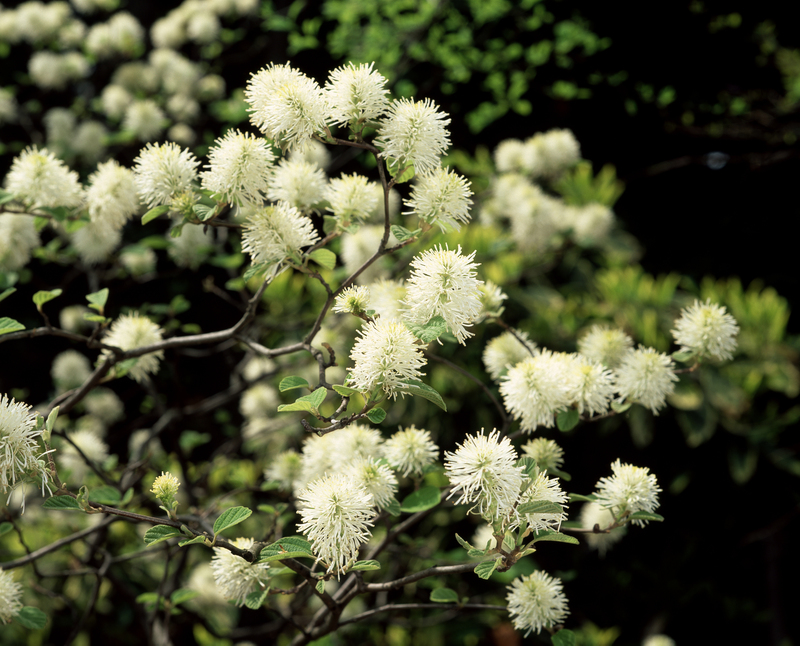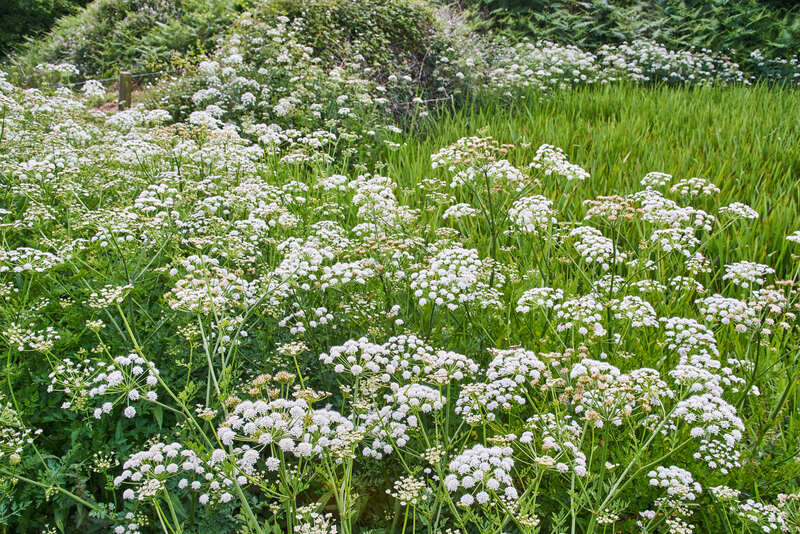Bloom with Confidence: 9 Tips Every New Gardener Should Know
Posted on 22/08/2025
Bloom with Confidence: 9 Tips Every New Gardener Should Know
Embarking on your gardening journey is both exciting and a touch intimidating. Whether you dream of vibrant flower beds, luscious vegetable patches, or your personal oasis of green, mastering the basics early on leads to flourishing plants and a rewarding gardening experience. This comprehensive guide shares nine essential gardening tips to help every new gardener plant, nurture, and grow with confidence.
Why Start Gardening?
Studies show that gardening isn't just good for your yard--it's good for your mind and body, offering stress relief, fresh air, light exercise, and organic produce or beautiful blooms. For gardening beginners, starting with practical advice helps eliminate frustration and cultivate success.

Essential Gardening Basics for Beginners
Before planting the first seed or sapling, it's important to understand some fundamental gardening principles. Below, learn nine gardening tips designed to help every novice gardener bloom with assurance and achieve a vibrant garden.
1. Know Your Garden's Environment
One of the most crucial steps for every aspiring gardener is getting acquainted with your unique gardening space. Understanding your garden's location, sunlight, and soil creates the foundation for healthy growth.
- Observe Sun Patterns: Check which parts of your garden get morning sunlight, afternoon sun, or shade. Most flowering plants and vegetables thrive in full sun--at least 6 hours per day.
- Assess Wind and Drainage: Notice if your spot is windy, sheltered, or waterlogged after rain. Drainage is key: few plants like "wet feet".
- Test Your Soil: Simple kits from garden centers can tell you if your soil's pH is neutral, acidic, or alkaline. This determines which plants will flourish.
Matching your plant selections to your garden's microclimate is the secret to a healthy, thriving landscape.
2. Start with Easy-to-Grow Plants
Don't set yourself up for frustration with difficult plants. Choose species known for suiting beginner gardeners and your region's conditions.
- Flowers: Marigolds, sunflowers, zinnias, pansies, and cosmos are forgiving and colorful choices for new flower gardeners.
- Vegetables: Radishes, lettuce, bush beans, and carrots are simple to grow and offer quick results for kitchen gardening newbies.
- Herbs: Basil, mint, cilantro, chives, and parsley are low-maintenance and perfect for small spaces or containers.
Begin with easy plants and build your gardening confidence before adding more demanding varieties.
3. Invest in the Right Gardening Tools
High-tech gadgets aren't required; you just need a few well-chosen basics. A handy set of gardening tools makes all the difference:
- Hand trowel: For digging small holes or transplanting seedlings.
- Pruners: To trim and shape plants or harvest produce.
- Gloves: Protects hands from thorns, splinters, and soil-borne germs.
- Watering can or hose: Ensures even, gentle watering.
- Garden fork: Useful for aerating soil and turning compost.
Quality, ergonomic tools last longer and help prevent fatigue or injury as you garden.
4. Embrace the Soil: Feed It, Don't Forget It
Thriving plants start with healthy, nutrient-rich soil. For newcomers, soil improvement is the most important investment in your future harvests and blooms.
- Add compost annually: Homemade or store-bought compost introduces valuable organic matter and microbes.
- Avoid chemical overuse: Fertilizers can help, but overuse can burn plants and harm beneficial organisms.
- Mulch generously: Shredded bark, leaves, or straw conserve water, suppress weeds, and slowly feed your soil.
Treat your soil as a living resource--nurture it for better yields and less maintenance.
5. Plan Your Garden Layout Carefully
Great gardens don't happen by accident. Sketching your garden layout helps plants thrive and saves you from headaches later.
- Mind the spacing: Overcrowding leads to disease and poor growth. Check seed packets or plant tags for recommendations.
- Consider height and spread: Put tall plants at the back of beds, and allow low growers to border edges.
- Group by water needs: Cluster plants with similar moisture requirements together for efficient watering.
A little pre-planning ensures you make the most of your space and keep plants healthy without constant rearranging.
6. Water Wisely and Consistently
Watering is a common stumbling block for beginners, but a few basic rules make it simple:
- Water deeply, but less often: Deep soaks encourage strong roots, while frequent, light watering makes weak plants.
- Morning is best: Watering early reduces evaporation and prevents fungal diseases that thrive in overnight dampness.
- Check before watering: Insert a finger into the soil an inch or two deep. Only water when it feels dry.
Practice moderation--overwatering kills more plants than underwatering!
7. Welcome Pollinators and Beneficial Wildlife
A vibrant, resilient garden teems with buzzing bees, butterflies, and birds. By attracting pollinators and beneficial insects, you naturally control pests and boost yields.
- Grow native flowers: Native species are best for supporting local bees, butterflies, and hummingbirds.
- Avoid pesticides: Many chemicals harm helpful insects--use organic or manual pest control whenever possible.
- Provide water: Even a shallow birdbath makes your garden more inviting to winged friends.
A pollinator-friendly garden is not just beautiful, but an integral part of a healthy ecosystem.
8. Stay on Top of Weeds and Pests
Unwanted growth and critters are the bane of any gardener's existence. Early detection and regular attention are your best defenses.
- Mulch to prevent weeds: Mulch blocks light and keeps most weed seeds from sprouting.
- Hand-weed regularly: A little effort weekly saves major headaches later.
- Inspect plants for pests: Look under leaves and along stems for aphids, caterpillars, or eggs. Remove pests by hand or use safe organic sprays.
Stay vigilant--consistent monitoring keeps your garden healthy and pest-resistant.
9. Keep Learning--Gardening Is a Journey
No one is born a perfect gardener. Celebrate successes and treat mistakes as learning opportunities. Great gardening comes with experience and patience.
- Join local gardening groups: Connect with neighbors and learn what grows well in your climate.
- Read books and trusted blogs: Follow reputable sources for tips and troubleshooting guidance.
- Record your progress: Keep a notebook or photo log of your successes, challenges, and timeline for future reference.
The most rewarding gardens are those grown with curiosity and care.
Bonus Tips for New Gardeners: Mistakes to Avoid
- Don't plant too early: Wait until after your region's last frost date to plant tender annuals or veggies.
- Avoid overfeeding: If in doubt, start with half-strength fertilizer and observe your plants.
- Label your plants: It's easy to forget what you planted where, especially in the first season!
- Don't neglect cleanup: Removing diseased leaves and spent blooms prevents the spread of pests and encourages more flowers.
Grow slowly and steadily. All master gardeners were once beginners--mistakes are part of the journey!

The Confidence to Bloom: Your Gardening Adventure Begins
By following these new gardener tips and giving your plants a solid foundation, you'll set yourself up for a lifetime of gardening joy and success. Every new leaf and bloom will bring new confidence.
Frequently Asked Questions on Gardening for Beginners
-
What is the easiest plant for a new gardener?
Pansies, marigolds, and sunflowers are some of the easiest flowers. Lettuce and radishes are easy starter vegetables for beginners. -
How often should I water my garden?
Most gardens need deep watering once or twice a week, but always check your soil moisture before watering. -
When is the best time to garden?
Cooler morning or late afternoon hours are best for most gardening tasks to avoid heat stress for you and your plants.
Conclusion: Let Your Garden--and Confidence--Grow
Ready to get your hands dirty and watch your garden thrive? With these nine essential gardening tips for new gardeners, you'll move from hesitant beginner to confident grower. Remember, all gardeners learn as they go. Nurture your soil, keep learning, and bloom with confidence--your vibrant garden awaits!
Latest Posts
Unlock the Full Potential of Your Garden with These Tools
Empowering Tips to Keep Garden Plants Secure in Winter
Boundless Adventures: Child-Friendly Garden Ideas Unveiled

